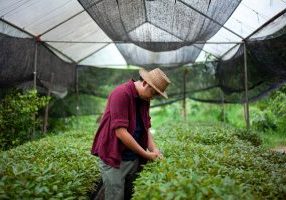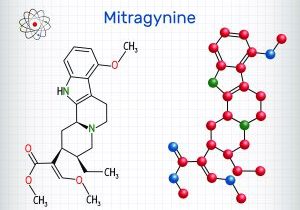2019 was a year of many changes in the way that kratom is classified, treated, and regulated in America. Through the efforts of advocacy agencies like the American Kratom Association and their supporters, four states passed Kratom Consumer Protection Acts, which protect consumers in those regions.
In 2020, they want to do even more.
By the end of the year, the American Kratom Association hopes to have protection acts passed in 25 states, meaning that 21 states would need to pass acts this year to accomplish the goal.
Is it possible? What states are being targeted? Find out all of this, and more, in today’s looks at what AKA will be focusing on for the coming year.
What Is The KCPA?
The kratom industry does not have a lot of regulation, control, or guidelines. Most industries have a set of good manufacturing practices that all reliable vendors and producers follow. The kratom industry did not have any such practices until recently.
Now, the American Kratom Association, AKA, runs the Good Compliance Standards Program. This voluntary program helps to ensure that:
- vendors are properly testing their products
- labeling their items
- ensuring that their products are as safe and high-quality as possible
With the KCPA, the American Kratom Association hopes to continue beyond that voluntary program to set up some official, state-backed guidelines.
The Kratom Consumer Protection Act is a sample set of guidelines and rules that were created as an example for state governments. Each state that AKA works with can adapt these guidelines to suit their state, but the general outline of what it should include is as follows:
- Defines kratom
- Registers products and vendors operating in the state
- Restricts and requires specific labeling practices
- Requires testing to reduce adulterated or contaminated product presence
- Sets up a state regulatory system
There are many different things that could be added to this as well. Ultimately, it is up to the legislators and lawmakers in each state to determine what they believe will be most effective in their state.
Amount & Synthetic Restrictions
Ideally, the KCPA legislation will also touch on the amount and types of alkaloids that can be in a kratom product.
As you might know, kratom’s benefits come from the alkaloids found in the plant. Alkaloids can, however, be created synthetically.
The KCPA suggests banning synthetic alkaloids and also putting a limit on the total amount of 7-OH that can be in the product. 7-OH, aka 7-hydroxymitragynine, is a metabolite of the primary alkaloids found in kratom.
States Where KCPA Exists
The AKA has already been working with states to implement the KCPA for some time now. Through their efforts, some form of this protection act exists in:
- Nevada
- Utah
- Arizona
- Georgia
Each of these states created their own version of the act, but the major components that will help to ensure that Americans can find safe, properly vetted kratom sources are underway in those areas.
States Where Kratom is Banned
Despite the best efforts of kratom advocacy groups, there are a few states where kratom bans have been passed.
Kratom is currently banned in these states:
- Indiana
- Vermont
- Wisconsin
- Alabama
- Arkansas
- Rhode Island
Though these outright bans are very real, AKA is planning to target four of these states during the 2020 goal stretch to reach 25 states with KCPA laws. The advocacy group believes that the bans in these areas are, at best, shaky with a lot of dissension. With some effort, the bans can be reversed.
Unfortunately, both Wisconsin and Arkansas do not have legislative sessions this year, but AKA plans to work with legislators and get things ready to be implemented in early 2021, if possible.
In Rhode Island, AKA has already had the opportunity to meet with a number of officials and scientists, so the process of attempting to overturn the kratom ban is already underway.
2020 Target States
These are the states that AKA will be targeting in 2020:
- Tennessee
- Mississippi
- Florida
- South Carolina
- North Carolina
- Virginia
- West Virginia
- Ohio
- Pennsylvania
- Oregon
- Idaho
- New York
- Rhode Island
- Wisconsin
- Colorado
- Kansas
- Oklahoma
- Missouri
- Louisiana
- Illinois
- Michigan
- Alabama
- Arkansas
These states are the states where the AKA has already been working to lay the groundwork for the Kratom Consumer Protection Act to be implemented. The organization also took into account the amount of funding that they currently have available to put into the project.
The situation for all of these states is different, so AKA is handling a lot of moving parts. In some states, lobbyists are already working hard. In other states, funding and lobbyist efforts are needed to move forward with the goal.
Ultimately, it’s hard to say for certain if this goal will be completely achievable or not. When it comes to politics, a number of other issues could stand in the way and prevent a law from being passed until next year, but we firmly believe that a lot of progress in a positive direction will be made.
Want To Get Involved?
If you have any interest in getting involved in the advocacy efforts at your state or local level, you can do that! Ask around at your local kratom shop if there are any such groups working in the area or contact the AKA to find out where you could step in to lend a helping hand.
If you aren’t ready to get involved in a group but still want to support the efforts that are being made, you can do a few simple things:
- Share your kratom stories on AKA’s website
- Buy from vendors that support the GMP compliance program run by AKA
- Send an email to your local or state officials letting them know of your opinion on any kratom-related legislation proposals
If we are to succeed in passing KCPA in all of these states in 2020, help is going to be necessary! Share your story; share your passion. With your help, the kratom industry can become safer than ever before.











